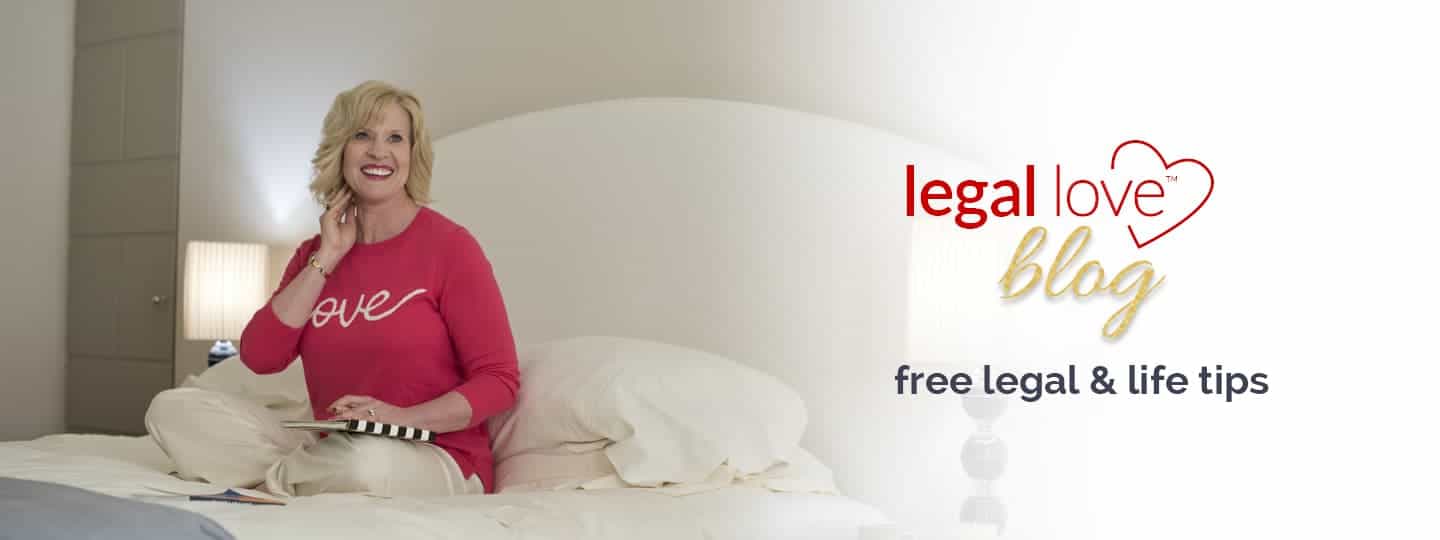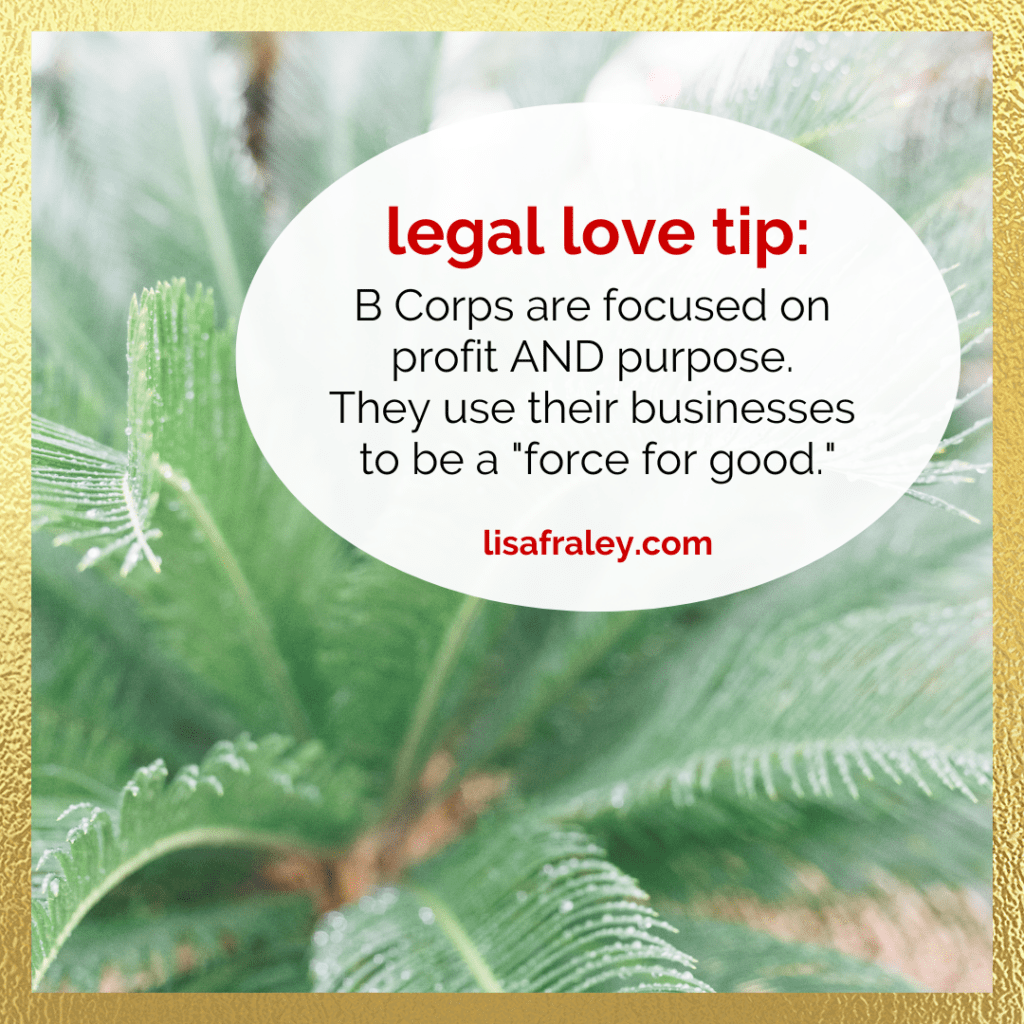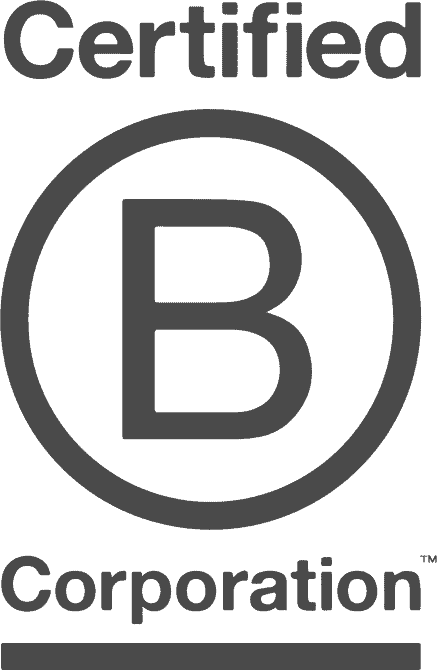What’s a B Corp and Should You Become One?
Naturally, a few peeps reached out and asked…
“What’s a Certified B Corporation?”
Certified B Corporations – or “B Corp”s – are companies which are focused on both profit AND purpose.
The main purpose of a B Corp is to promote social and environmental change through positive business practices.
What I love about B Corps is that they’re focused on accountability, transparency, building stronger communities. They want to do things like reducing poverty levels, protecting the earth, lowering inequity, and promoting equality among shareholders.
In other words, if a company could be labeled “organic”… it would be a B Corp!
B Corps are:
- purpose-driven companies which support people, profit AND the planet
- certified by a non-profit organization called B Lab based on their entire “holistic” social and environmental impact
- proof that making money and being socially responsible don’t have to compete – model what’s known as “sustainable consumerism”
My Top 11 Favorite B Corps
We all have so much power in our pocketbooks to support companies which match our values.
I honed in on learning more about B Corps a few summers ago when I earned a Certificate in Sustainable Business Strategy from Harvard Business School Online.
I’m a huge fan of supporting companies which are doing good things for people and the planet.
There are soooo many B Corps now to choose from (thank goodness!). Here are my personal top 11 favorites:
- Amy’s Kitchen – frozen food company provides delicious, non-GMO, gluten free, vegan, & vegetarian foods (their GF/DF mac-n-cheese is a great comfort food!)
- Athleta – women’s athletic product company focused on the “Power of She” and sustainable materials.
- Beautycounter – natural skin care and cosmetics company which excludes 1,800 questionable or harmful chemicals .
- Bombas – sock company donating over 48 million pairs of socks and items to homeless shelters.
- Butcher Box – meat delivery company featuring 100% grass-fed beef, free-range organic chicken, humanely raised pork, and wild-caught seafood directly to your door.
- Leesa – mattress company which gives one mattress to someone in need for every 10 sold (I myself have a king size – it’s the best mattress I’ve ever had!)
- Go Macro – nutrition bar company which produces certified organic, vegan, gluten-free, kosher, non-GMO plant-based nutrition bars (I always pack them when I travel as I wrote about in my Top 7 Travel Tips post here).
- Patagonia – outdoor gear company which has donated $89 million to protect air, water and soil quality.
- Prose – hair care company focused on individualized products using clean, sustainably-sourced ingredients.
- Thrive Market – e-commerce membership-based company offering 500+ natural and organic food, home and beauty products using carbon neutral shipping.
- Toms – shoe company which donates one pair of shoes for every pair sold.
- Zevia – soft drink company which uses stevia instead of sugar or corn syrup.
If you want to support more B Corps, you can find a giant list of all 5,111 B Corps right here.
So how does a company become a B Corp?
To be labeled a B Corp, a company has to undergo a rigorous review process to determine whether it’s environmentally conscious, inclusive, transparent, and sustainable enough to receive B Corp certification. If it passes the certification, the company can use this symbol: (you’ll probably notice it more now….)
There are legal standards to become a B Corp.
Being a B Corp “demonstrates that a company is not only committed and accountable to creating lasting value for all stakeholders but is credibly using their business as a force for good.”
Therefore, B Corps do need to include language in their corporate governing documents (like their Articles of Incorporation) that their legal framework will be based on ‘stakeholder governance’, among other things. They have to show that they are “legally accountable to all of their stakeholders – workers, communities, customers, suppliers and the environment – not just shareholders.”
Should YOU become a B Corp?
Even though it would be super cool to be a B Corp, the answer is most likely not.
Why? Because B Corp certification is mainly designed for large PRODUCT-based companies.
It’s generally not for small service-based companies like coaches, holistic practitioners, energy healers or medical practitioners which have a small environmental footprint.
Know that even if you don’t need to BECOME a B Corp, you still can make an impact.
4 Ways You Can Make a B Corp-like Impact…
1. Run a mission-driven business with heightened awareness of your impact on people and the planet by considering more than just your profit margin. (I’m guessing you already are doing this….)
2. Conserve energy by putting your computers in “sleep” mode when not in use, print less, recycle used paper, buy less plastic, write on both sides of your journal pages – all of these tiny actions matter.
3. Use your consumer dollars to support B Corps (like my list of my Top 11 Faves above!).
4. Spread the word to others about how YOU are being a force for good by operating a heart-centered business in a socially conscious way – and encourage them to do the same.
There’s so much each of us can do, each and every day, to make our small but important impact on this big planet. As my mother always says, “it all adds up”!
I hope this little legal primer on B Corps was helpful to you. It was fun for me to share it with you.
Here’s to getting legally covered – and to understanding and supporting B Corps!




